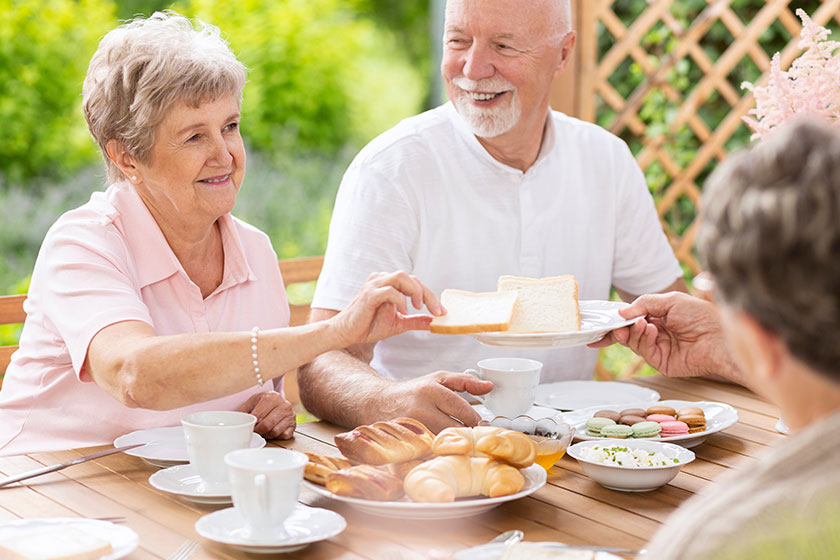How long would it take before you got tired of cooking lavish dinners for one and started microwaving pre-packaged dinners if you had to eat alone every night? How often do you eat a balanced meal? How often do you, say, substitute pie for protein?
Eating by oneself might be a challenge. Nearly a third of the elderly population face additional challenges because they choose to live independently.
According to studies, individuals who eat most of their meals alone are more likely to develop cardiovascular disease and diabetes. Regularly eating alone as an older adult also increases the likelihood of a number of other health problems, including malnutrition. Let us take a closer look at the importance of eating together when staying in active senior living in Seaton, TX.
Fulfill Nutritional Needs
The elderly sometimes avoid preparing nutritious, hearty meals for themselves because they view it as too much of a hassle. Furthermore, the company you keep when dining might have a significant impact on your eating habits. It is possible that older adults will eat their vegetables with friends on the table eating the same thing. However, when they are home alone, they may opt to watch television while munching on just chips and salsa.
Gain Social Experiences
Prepared foods like rotisserie chicken, meatloaf, and salads loaded with vegetables may be found in many supermarkets and farmers’ markets. It is still an issue, though, because eating is inherently a social activity. Many families value lunch as a time to bond via shared experiences and intriguing conversations. Hence, mealtime can be a particularly lonely time for elders who live alone. Social disconnection at mealtimes is associated with an increased risk of depression, which is already more prevalent among the elderly. This makes eating together especially crucial for this group. As a social group, older adults especially benefit from the time spent together at the table. The health benefits of socializing with others, such as eating with family or friends, cannot be emphasized, especially for elderly individuals.
Enhance Physical Health
The nutritious intake of the elderly can be improved by eating with others. When compared to when they eat alone, older adults who dine with friends take longer to eat and report eating more healthily. Both of these measures contribute to your loved one’s ability to have a longer, healthier, and more self-reliant existence by way of a more balanced senior diet. Similarly, if elders participate in meal preparation, they are more likely to choose healthy choices. A member of the elderly’s family or close friend could accompany them out on errands in the time leading up to lunch together, allowing them to get some exercise and nudge them toward purchasing healthier options.
Improve Emotional and Mental Well-Being
The opportunity to get together, develop connections, and build better relationships is a key benefit of sharing a meal with others. Having a group to identify with can do wonders for one’s sense of self-worth. Additionally, more than half of the elderly population agree that having a meal with others improves the flavor of the food they are eating, according to research.







